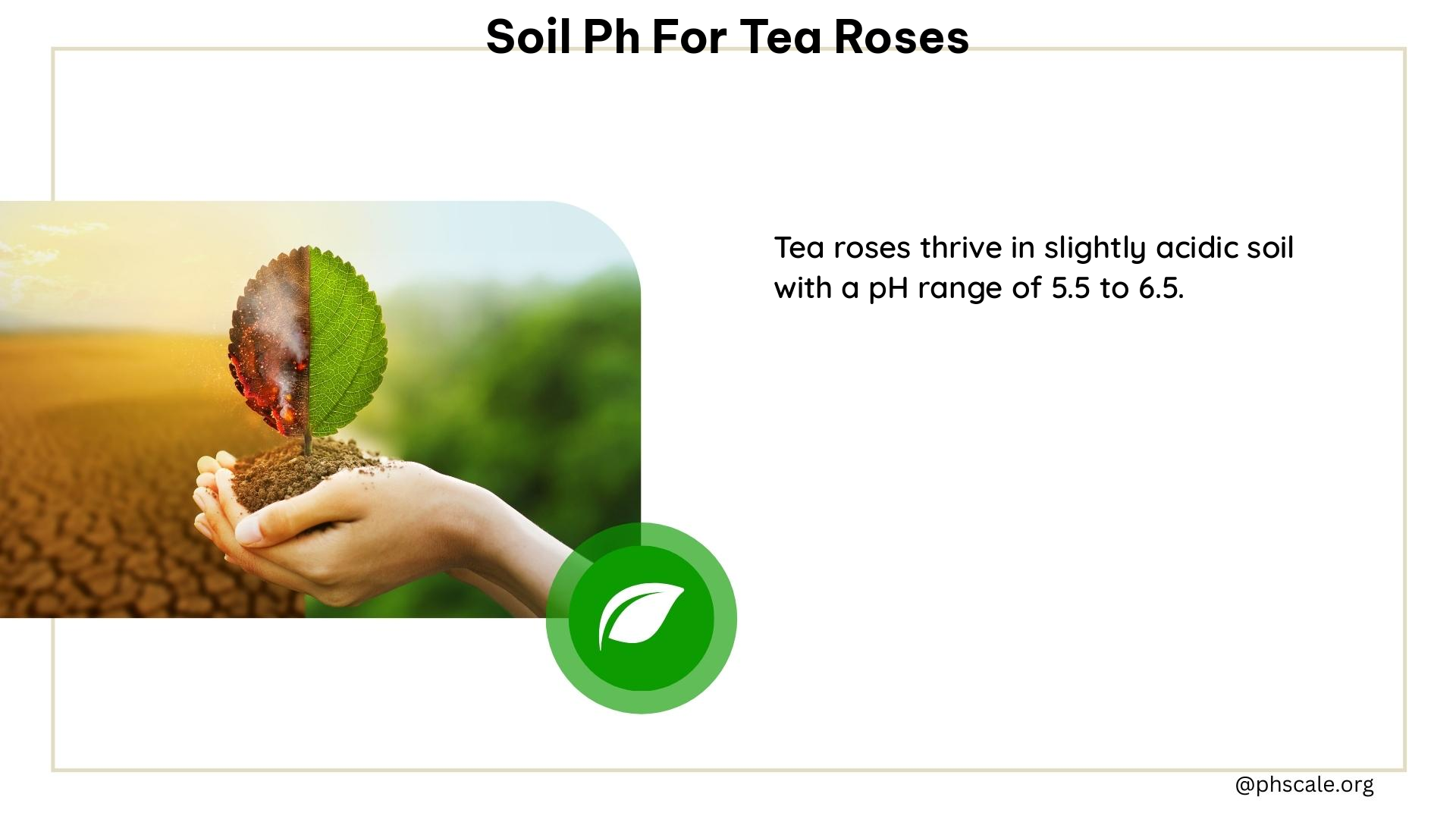The ideal pH range for tea roses is between 6.0 and 6.9, with an optimal pH of around 6.5. This slightly acidic to neutral pH allows for the best absorption of nutrients by the plant, ensuring healthy growth and vibrant blooms.
Importance of pH for Tea Roses
Maintaining the proper soil pH is crucial for the success of tea roses. The pH level directly impacts the availability and uptake of essential nutrients, which can significantly affect the plant’s overall health and performance.
Nutrient Availability
A pH range of 6.0 to 6.9 ensures that all essential nutrients, such as nitrogen, phosphorus, potassium, iron, and manganese, are readily available for the tea roses to absorb. If the pH is too acidic or too alkaline, these nutrients become less accessible, leading to stunted growth, yellowing foliage, and increased susceptibility to diseases and pests.
Growth and Health
Tea roses thrive in slightly acidic to neutral soil, which supports healthy growth and vigor. Incorrect pH levels can cause a range of problems, including stunted growth, yellowing leaves, and dieback. By maintaining the optimal pH, gardeners can create an environment that allows tea roses to reach their full potential.
Testing Soil pH for Tea Roses

Regularly testing the soil pH is essential for ensuring the ideal conditions for tea roses. Here’s how to approach the process:
Frequency of Testing
It is recommended to test the soil pH regularly, especially before planting new roses and after pruning. This ensures that the soil conditions are optimal for the plants and allows for timely adjustments if necessary.
Methods of Testing
There are two common methods for testing soil pH:
- Home pH Kits: These kits are available at local nurseries and are relatively inexpensive. They provide a quick and easy way to test the pH level of your soil.
- Laboratory Testing: For more detailed and accurate information, send a soil sample to a laboratory for analysis. This provides additional data on nutrient levels, salinity, and soil texture, which can help you make more informed decisions about soil amendments.
Adjusting Soil pH for Tea Roses
If the soil pH is not within the ideal range for tea roses, adjustments can be made using various materials.
Correcting pH Imbalance
- Acidic Soil: Add lime, dolomite, or wood ash to raise the pH.
- Alkaline Soil: Add ferrous sulphate, aluminum sulphate, or elemental sulphur to lower the pH.
- Organic Matter: Incorporating organic matter like compost, leaf mold, or pine bark can help balance the pH over time.
It’s important to follow the recommended application rates and monitor the soil pH regularly to ensure the desired adjustments are achieved.
Common Contaminants and Substances in Soil
Certain substances in the soil can also impact the availability of nutrients for tea roses. Understanding these potential issues can help gardeners address any problems more effectively.
Aluminum Ions
In acidic soil (pH below 6.0), aluminum ions can trap phosphorus, making it unavailable to the plant. This can lead to stunted growth and other nutrient deficiencies.
Iron Deficiency
In alkaline soil (pH above 7.0), iron becomes less available, leading to interveinal chlorosis (yellowing of the leaves between the veins) and other health issues for tea roses.
Helpful Tips and Home Remedies
To further optimize the soil conditions for tea roses, consider the following tips and home remedies:
- Use pH-Adjusted Water: When liquid feeding, adjust the pH of the water to around 6.3-6.5 to ensure optimal nutrient availability.
- Add Beneficial Nematodes: These microscopic worms can help improve soil health and structure, which can benefit tea roses.
- Monitor pH Over Time: Regularly test the soil pH to ensure it remains within the optimal range for tea roses, and make adjustments as needed.
By understanding the importance of soil pH and implementing the appropriate strategies, gardeners can create the ideal growing conditions for their tea roses, leading to vibrant, healthy plants and abundant blooms.
References
- Treloar Roses. (n.d.). pH Imbalance – Treloar Roses. Retrieved from https://www.treloarroses.com.au/pH-Imbalance-Roses
- Reddit. (2023). pH question : r/Roses – Reddit. Retrieved from https://www.reddit.com/r/Roses/comments/12f5bw8/ph_question/
- Santa Clarita Valley Rose Society. (n.d.). Balancing Soil pH for Growing Roses. Retrieved from http://www.santaclaritarose.org/BalancePH.html
- BAC Online. (n.d.). pH Level for Roses: What’s The Ideal Range? – BAC Online. Retrieved from https://www.bacfertilizers.com/mineral-fertilizer/soil-additives/ph-level-for-roses
- Jessica Anne Alexander. (2020). Soil pH and Roses – Jessica Anne Alexander. Retrieved from https://jessicaannealexander.com/garden-blog/2020/5/1/readying-the-ground-for-roses.
